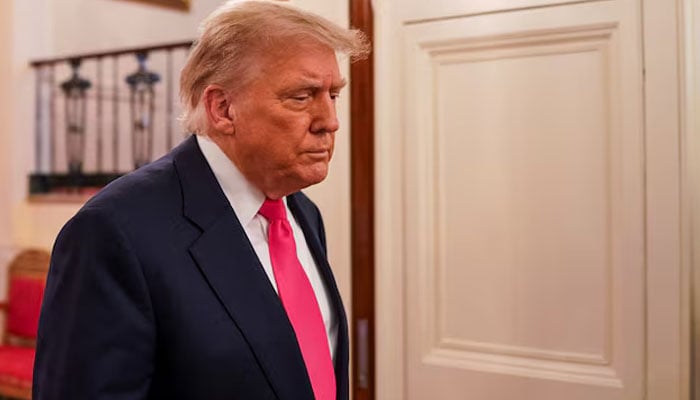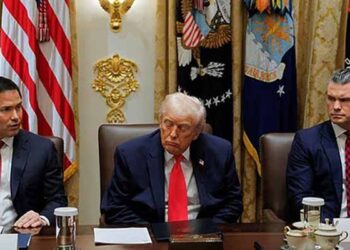Select Language:
- New U.S. tariffs on Canada coming in one week.
- U.S. tech firms impacted by Canada’s digital services tax.
- Washington and Beijing agree on a framework for rare earth trade.
On Friday, President Donald Trump announced he is halting trade talks with Canada in response to taxes affecting American technology companies. He added that Ottawa will be informed of the new tariff rate within a week.
Trump’s comments were directed at Canada’s digital services tax introduced last year, which is projected to generate CAD 5.9 billion (USD 4.2 billion) over five years.
Although the tax isn’t new, the Computer & Communications Industry Association stated that U.S. service providers would soon bear a multi-billion dollar burden in Canada come June 30.
This 3% tax is aimed at large corporations like Alphabet, Amazon, and Meta that offer digital services to Canadian consumers, and the U.S. has previously requested discussions to resolve the issue.
“Due to this outrageous tax, we are immediately terminating all trade discussions with Canada,” Trump declared in a post on his Truth Social platform. He labeled Canada as “very difficult” for trade purposes.
While Canada had previously been spared from some of Trump’s broader tariffs, including a 10% levy affecting almost all U.S. trading partners, it is still subject to a different set of tariffs.
Trump has also imposed hefty tariffs on imports of steel, aluminum, and automobiles.
Last week, Canadian Prime Minister Mark Carney indicated that Canada would modify its 25% counter-tariffs on U.S. steel and aluminum if a bilateral trade agreement was not finalized within 30 days.
“We will keep negotiating these complex matters in the best interests of Canadians,” Carney stated on Friday, noting that he had not spoken with Trump since the president’s announcement.
Progress with China
Trump’s latest stance toward Canada came shortly after Washington and Beijing confirmed they had finalized a framework for advancing trade discussions.
According to Beijing, the U.S. would lift “restrictive measures,” while China agreed to “review and approve” items governed by export controls.
A significant concern for the U.S. in its negotiations with China has been securing a stable supply of rare earth elements, which are crucial for products like electric vehicles, hard drives, and national defense equipment.
China, a major producer of these elements, began requiring export licenses in early April, which many interpreted as a reaction to the tariffs imposed by Trump.
The two nations reached an agreement following discussions in Geneva in May to temporarily lower retaliatory duties on each other’s products.
China also pledged to reduce some non-tariff countermeasures, although U.S. officials later accused Beijing of violating the agreement and delaying export license approvals for rare earths.
After further discussions in London this month, both sides agreed to a framework to uphold their Geneva agreement.
A White House official informed AFP on Thursday that the Trump administration and China had come to “an additional understanding” regarding the framework to carry out the Geneva accord.
This announcement followed Trump mentioning a trade deal with China at an event, although specifics were not disclosed.
Under this arrangement, China stated it would “review and approve applications for export control items that comply with legal requirements,” while the U.S. would correspondingly eliminate a series of restrictions against China.
Potential Future Agreements
Several economies, excluding China, are facing a July 9 deadline for increased tariffs set to rise from the current rate of 10%.
It’s unclear whether other nations facing these heightened U.S. tariffs will manage to reach agreements that could prevent them before the deadline.
U.S. Treasury Secretary Scott Bessent mentioned Friday that Washington aims to finalize its trade agenda by September, indicating the possibility of additional agreements, although discussions may extend beyond July.
In an interview with Fox Business, Bessent emphasized that there are 18 primary partners with whom the U.S. is focusing on trade pacts.
“If we can finalize agreements with 10 or 12 of these key 18, there are also another 20 important relationships to consider. I believe we could have trade matters wrapped up by Labor Day,” he commented, referring to the U.S. holiday on September 1.
On Thursday, the White House indicated that the July deadline might be extended, or the president could establish a tariff rate for nations that do not reach an agreement.
Major indexes on Wall Street, which initially gained ground on hopes of achieving deals, subsequently dropped after Trump canceled the discussions with Canada.







